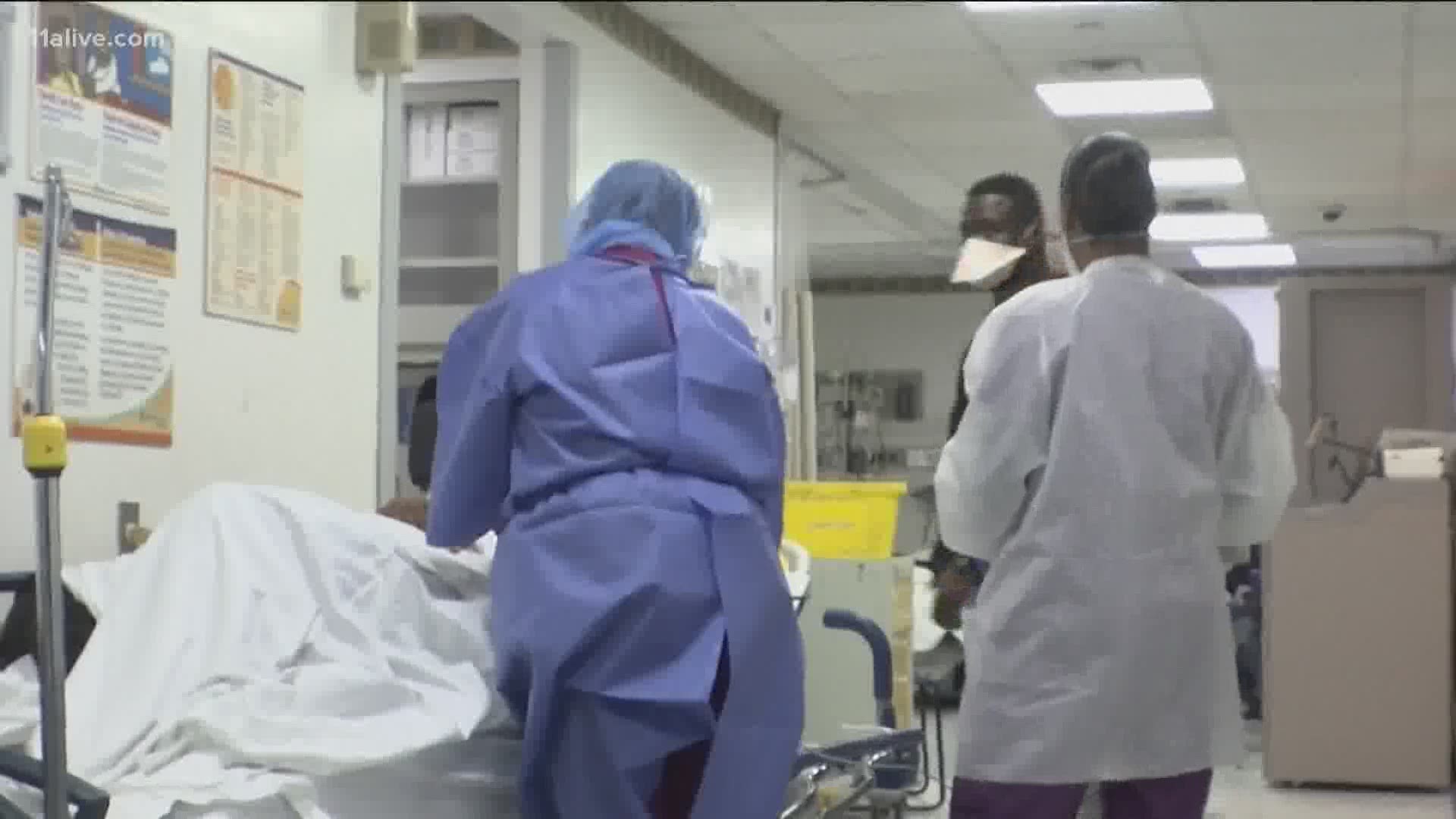ATLANTA — President Trump's physicians have "elected to initiate Remdesivir therapy," the White House announced late Friday night, giving the president his first dose of a drug that was studied at Emory University and found to be effective against COVID-19.
In a release, the president's physician Sean P. Conley said that the president did not require oxygen and was resting comfortably after receiving his first dose of Remdesivir, describing his condition as "doing very well."
The president himself also tweeted late Friday night: "Going welI, I think! Thank you to all. LOVE!!!"
It was earlier reported the president had been first given an experimental antibody cocktail called Regeneron.
Remdesivir was one of the first drugs to emerge as an effective tool against COVID-19 - though it's not considered a cure.
It's reportedly been found that it can significantly reduce hospital stays, but does not necessarily reduce someone's chances of dying if they develop a severe enough COVID case.
“Remdesivir is not the answer to the epidemic. It’s going to play a role in helping a few people,” Mark Siedner, an infectious-disease specialist at Massachusetts General Hospital, told The Washington Post earlier this week.
The drug underwent clinical trials at Emory earlier this year, back at the start of the pandemic, with the school "enrolling more patients in the study than any other site around the globe."
Dr. Aneesh Mehta, who led the study for Emory, said at the time researchers were "extremely happy that the work of this team contributed not only to the advancement of scientific knowledge, but also to the helping many of our patients recover more quickly and return home to their families."
In May it was distributed by the Georgia Department of Public Health to hospitals.

